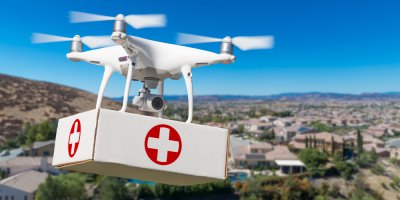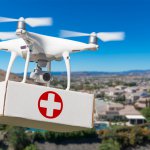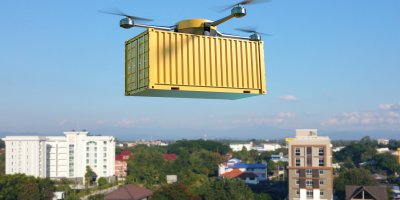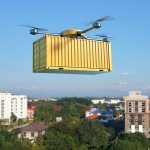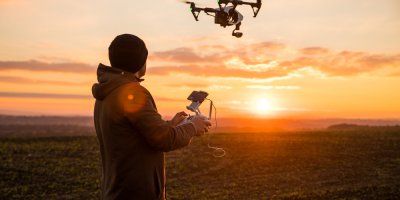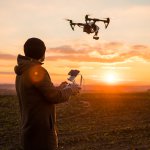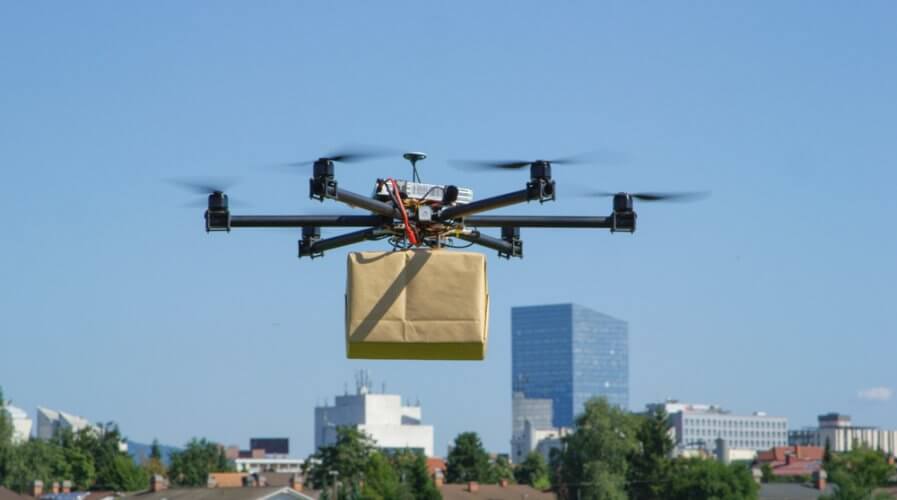
APAC bets big on drones says Frost & Sullivan. Source: Shutterstock
APAC should bet big on drone deliveries says Frost & Sullivan
OVER the past two years, some pretty exciting names in the aviation and logistics industries made headlines when they announced they were exploring drone technologies through pilot projects.
Now, it finally seems as though these companies are hovering over the finish line, with drone solutions and offerings lined up for launch in the near future.
According to a new Frost & Sullivan study, the number of delivery drones in the global e-commerce industry alone is expected to increase to 2.2 million units by 2025.
As a result, there will be a surge in the demand for drone servicing, repair, and maintenance — but analysts believe that the entry of majors from other industries is a huge boost to the market, as they are able to leverage their expertise in technology, e-commerce, aviation, and logistics, all of which will accelerate the commercialization process.
“Faster deliveries, reduced road traffic, access to remote areas, accurate deliveries, and greater convenience make drones an attractive proposition for last-mile delivery,” said Frost & Sullivan Mobility Consulting Vice President Joe Praveen Vijayakumar.
“Acknowledging the vast application scope of the technology, drone delivery companies are collaborating with drone software platform companies to develop advanced artificial intelligence and autonomous flight capabilities. There is also considerable potential to partner with companies developing next-generation rotors and propellers that can muzzle sound.”
Drone delivery trials are being conducted in at least 15 countries, including Australia, the US, the UK, Canada, Japan, and Switzerland by specialized companies such as Flirtey, Flytrex, and Zipline, as well as cross-industry companies such as Amazon, Alphabet, Alibaba, JD.com, Airbus, and UPS.
“Furthermore, investments in robust cybersecurity are crucial to increasing the adoption of drone delivery systems.”
Vijayakumar also believes that the rise of blockchain in the commercial drone market will make drone services more secure, precise, and easier to track and regulate.
He foresees that blockchain allowing drone-makers to use cryptography in order to help drones securely communicate with each other, the customer’s mobile phone, as well as the command center.
According to Frost & Sullivan, as drone delivery becomes increasingly mainstream, companies will be able to enjoy greater growth opportunities presented by:
- Offering drones that are optimized to the specific needs of individual application areas. This will result in a range of business models and revenue streams.
- Establishing supporting infrastructures, including distribution hubs, delivery platforms, and a network of charging stations to ensure smooth drone delivery operations.
- Working closely with relevant government bodies to expedite the process of framing rules for drone delivery operations.
- Resolving challenges related to safety, air traffic control, and noise.
READ MORE
- Safer Automation: How Sophic and Firmus Succeeded in Malaysia with MDEC’s Support
- Privilege granted, not gained: Intelligent authorization for enhanced infrastructure productivity
- Low-Code produces the Proof-of-Possibilities
- New Wearables Enable Staff to Work Faster and Safer
- Experts weigh in on Oracle’s departure from adland

